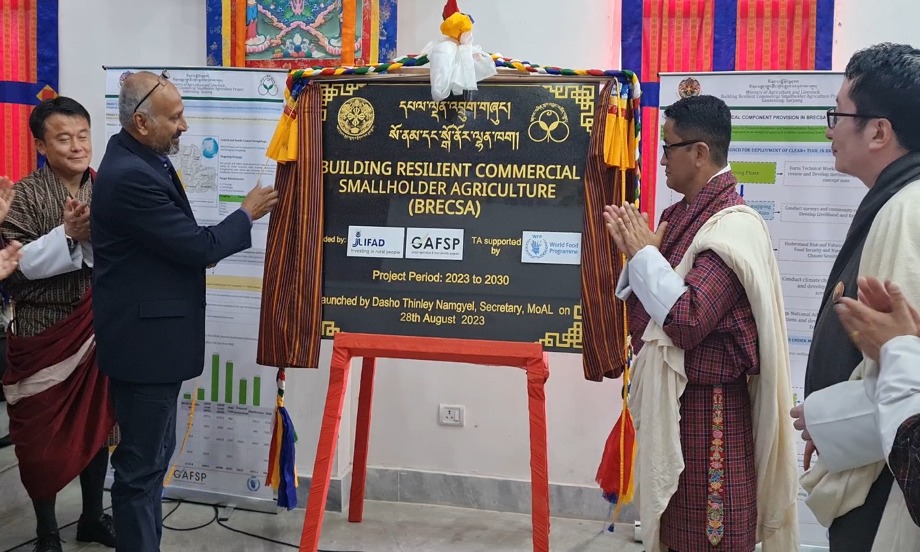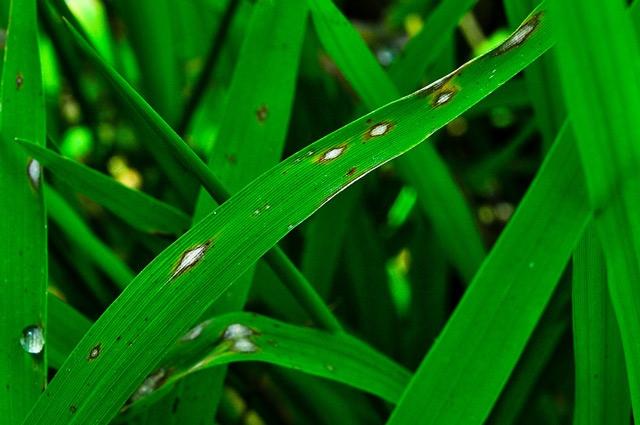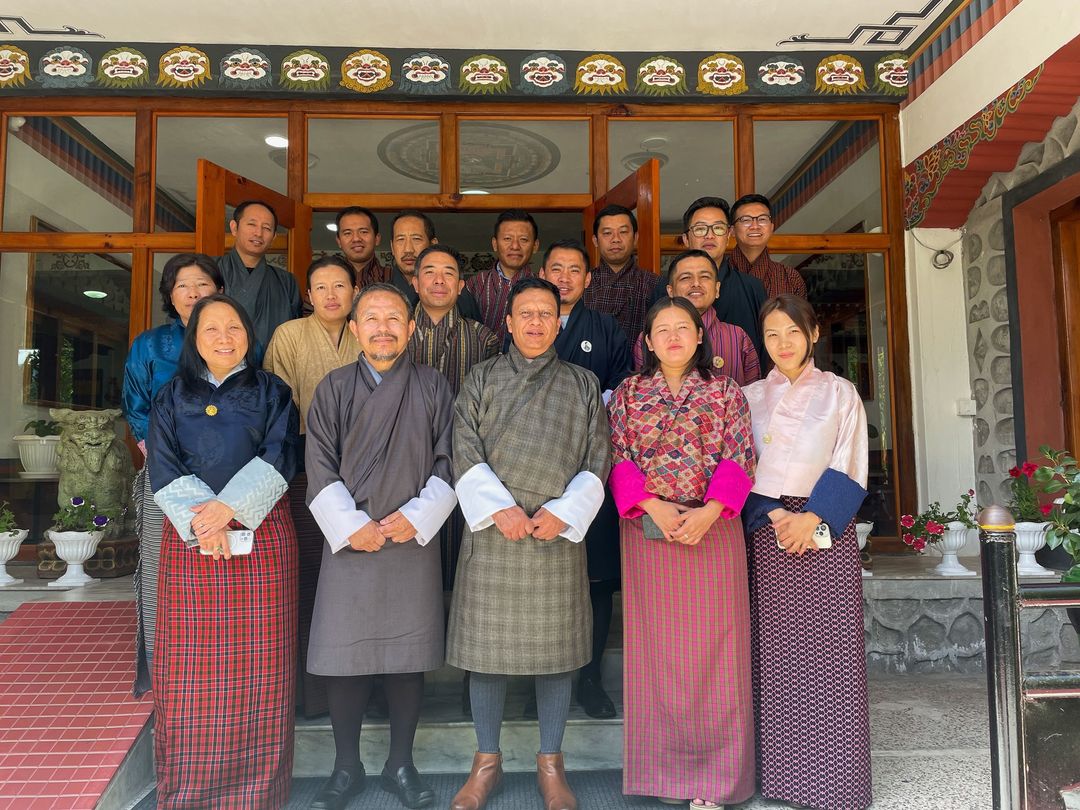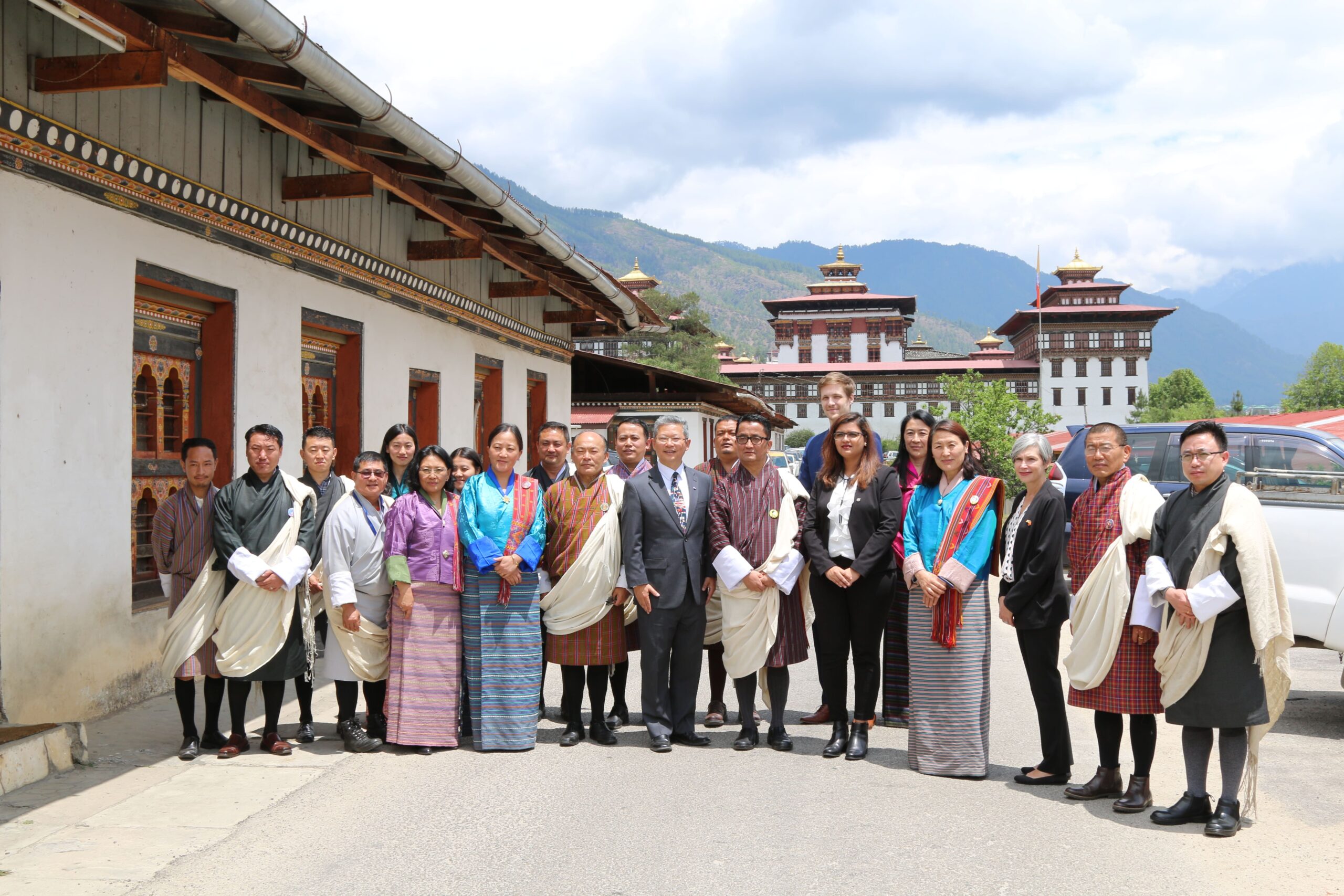𝟐𝟖 𝐀𝐮𝐠𝐮𝐬𝐭, 𝐆𝐞𝐥𝐞𝐩𝐡𝐮: The Ministry of Agriculture and Livestock launched a project titled “Building Resilient Commercial Smallholder Agriculture (BRECSA)” in collaboration with the International Fund for Agricultural Development (IFAD) and the World Food Programme (WFP) today at Gelephu. Besides the Ministry of Agriculture and Livestock officials, the launch program was attended by Dzongdas of Trongsa, Tsirang, Sarpang, the Country Director of IFAD and Representatives of the WFP, CSOs, Private Sector, NGOs and relevant Ministries.
The BRECSA project is a fully blended project with USD 13 million grant from Global Agriculture and Food Security Programme (GAFSP) and USD 8.935 million loan from IFAD, of which, USD 2.6 million has been allocated to WFP for providing Technical Assistance to the project and USD10.4 million for investments. The project will cover 37 gewogs of the four central and south-central districts of Sarpang, Tsirang, Trongsa and Zhemgang. The project aims to benefit more than 12000 households accounting to more than 47000 direct beneficiaries, of which, 60 percent will be women-headed farmers, 30 percent youth farmers and 10 percent others.
The BRECSA project will focus on implementation of three major components with the aim to achieve 30% increase in resilient commercial agricultural production and improve food and nutrition security in the four target Dzongkhags by 2030. The three key components of the project include resilient production systems, improved value chain coordination and market linkages, and innovative and competitive agri-food sector.
The start of BRECSA project at this juncture is timely as our country is pursuing major transformative initiatives in order to achieve the long-term aspiration of “Developed Bhutan” by the end of 14th Five Year Plan. Hence, the project goal and objectives align well with the national priorities, goals and objectives in terms of transforming agricultural development in the country.
Secretary, Dasho Thinley Namgyel in his opening remarks stated, “the ultimate objective of the project is to make our farmers rich.” Mr. Roshan Cooke, Country Director, IFAD in his opening remarks stated, “let us keep sharp focus on the upliftment of the smallholder farmers and the need to make them prosperous.” WFP Representative from Bangkok, Ms. Shama Maqbool, in her opening remarks stated, “WFP will use existing capabilities as a base for further development explicitly linking individual skill sets to institutional goals.”
The launch program will be followed by a start-up workshop to ensure all partners are on-board for implementation of the project. The project Start-up workshop will be concluded on 31st August 2023 and the project implementation will start from this financial year 2023-24.




